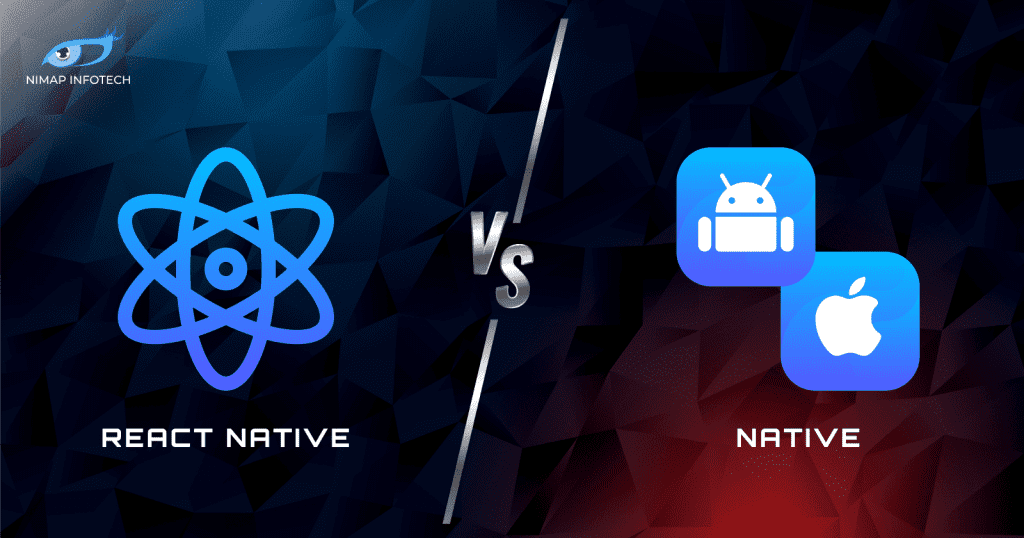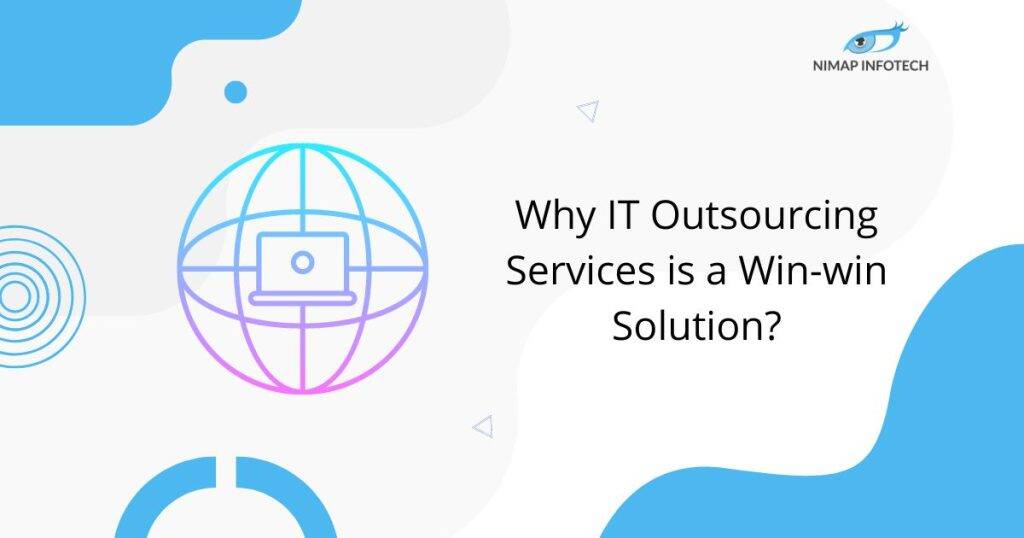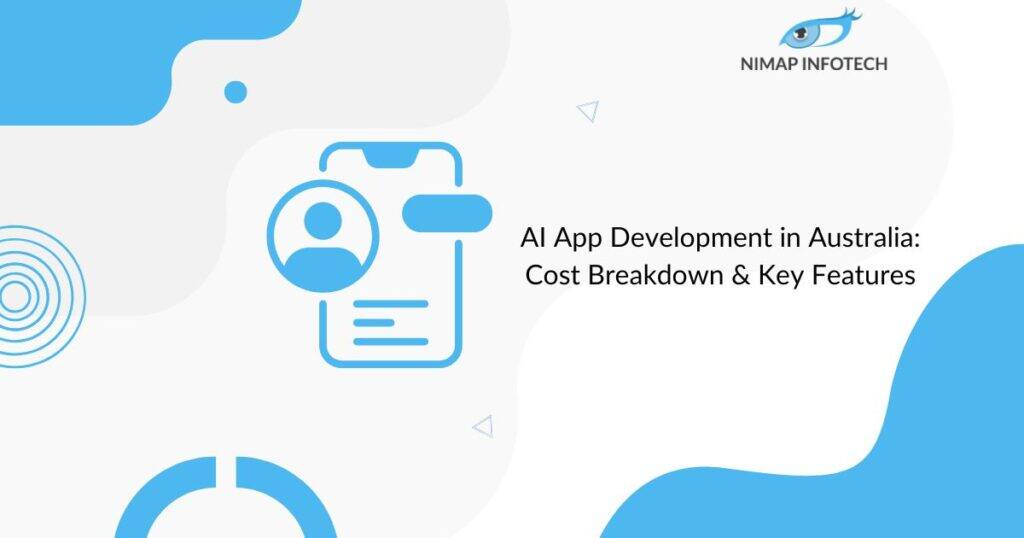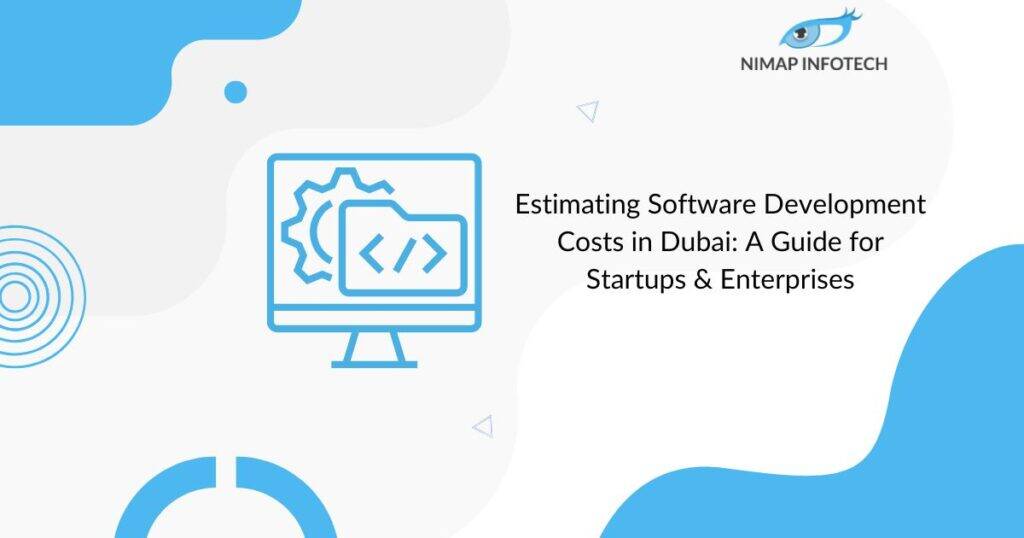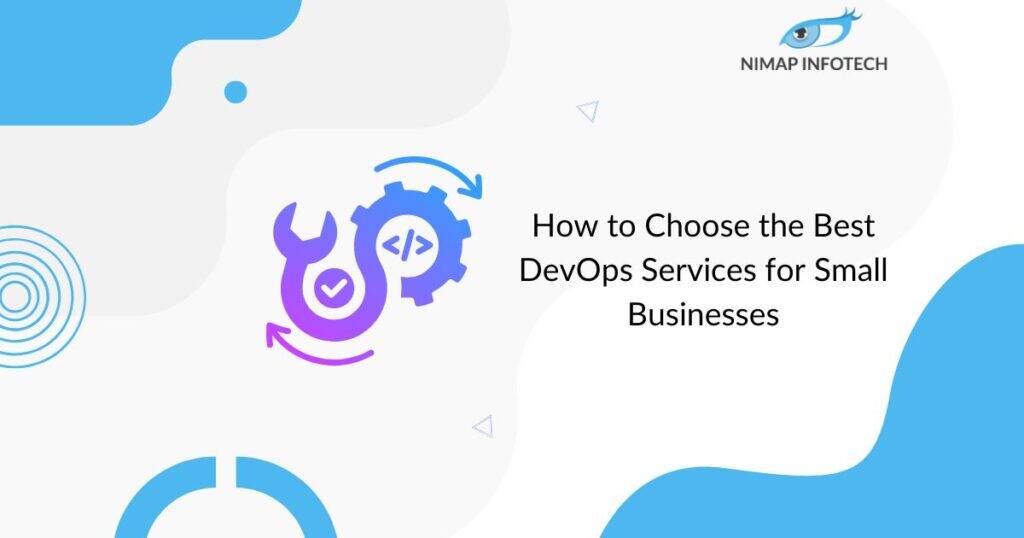Table of Contents
ToggleReact Native vs Native
Since mobile apps are traditionally developed in Native Languages, many popular apps are being partially or completely rewritten in React Native the rise of React Native, like Facebook, Instagram as well as Skype. This leads to the question: Do mobile developers need to use React Native to develop mobile apps or Java or Swift to do it all? It depends on the requirements, so there isn’t any correct answer.
What is React Native?
The React Native framework is open-source for building native mobile apps using JavaScript. It was developed by Facebook and is based on the React JavaScript library, which is commonly used to build web applications’ user interfaces. By creating native mobile apps using a single codebase, developers can build apps for multiple platforms, including iOS and Android.
Due to the fact that developers don’t have to write separate code for each platform, React Native can be developed faster and easier to maintain. Additionally, React Native offers a variety of features that make it an appealing tool for developing mobile apps, including hot reloading features, a large developer community, and Facebook’s strong support.
What is Native?
Software or applications native to a particular OS or platform are called native apps. For example, native iOS apps are designed to run exclusively on iPhones and iPads and are designed to run on the iOS operating system. Native apps are typically written in programming languages specific to the platform for which they are developed.
The native programming language for iOS apps is Swift or Objective-C, while the native programming language for Android apps is Java or Kotlin. As an advantage over other mobile apps, native apps have better performance. They are more integrated with the device’s hardware and software and are easier to use. However, they have significant limitations, such as the necessity to design distinct app versions for multiple platforms and the possibility of greater development expenses.
Benefits of Using React Native
-
A cross-platform:
React Native is cross-platform by default, running on Android, iOS, Windows, macOS, and the web. As a result, your development team can use one code base to target these platforms. It may seem on the surface that Reacts Native is not the best option, but there is much good economics to consider, making it easy to plan, develop, test, deploy, and manage logistics related to it.
-
Offers Hot Reloading:
To rapidly see and test changes, developers need Hot and Live Reloading in React Native.
-
Results same experience on Android as well as iOS:
A React Native app offers the same user experience on Android and iOS devices. Without mentioning the User Experience and User Interface, one would be unable to create a successful app using React Native. By mimicking the look and feel of native Android or iOS apps, React Native converts app interfaces into fully native-looking components.
-
Offers Native Modules:
During app development, it is crucial to be aware of issues such as app performance and platform specifics. Using React Native, developers can use its native modules to supplement their React Native app, saving them the headache of creating workarounds.
-
It meets the desire for speed among developers:
The React Native technology meets the developers’ need for speed; developers know how valuable time is. React Native improves developer productivity by accelerating the development process on projects exponentially, so there’s no need to reinvent the wheel when one codebase can be optimized to target multiple platforms in half the time or maybe lesser.
Hire React Native Developers
Also Read: React Native App Development: Complete Guide
Benefits of Using Native
-
Outstanding UI/UX capabilities:
Applications using native technologies provide a better User Experience (UX). Maintaining a self-contained UX design for every platform guarantees that the application experience is quite as fluid as feasible.
Native alternatives provide the developer with several options, allowing them to tailor their UI and UX for the most natural end experience. For example, if your startup’s value offer involves animations & smooth transitioning, you’ll need to meet these expectations as effectively as feasible. Native app dev ensures it.
-
Security:
Native apps connect with the capabilities of a machine’s operating system and, consequently, are protected by the OS’s security mechanisms. Apps designed with react Native rely upon third-party integration and systems browser security. Which might open the door to unwanted assaults. Native apps only ever use APIs and are often free of third-party connections. Keeping them secure for both the user & the platform.
-
Provides a complete Operating System platform and integration support:
When you create an app with native OS technology, you automatically have exposure to native OS functionalities. This included SDKs, sensors, & specific hardware that do not require hot-wiring workarounds.
As a result, if your goal is to create an app that primarily relies on the operating system, leverages ARKit, and requires device accessibility (TouchID, Camera, Microphone, etc.), native solutions are better.
Android and iOS app owners give enough assistance for their native apps. As a result, accessing new features or hardware in a native OS seems to be more effortless. It is additionally quicker than cross-platform alternatives.
-
Enhanced code control:
Writing code that is closer to the metal is required for native app development. Furthermore, it allows developers to create low-level code, giving them greater environmental control.
Because the code is based on similar concepts, it is easy to evaluate, troubleshoot, and debug.
Developers are not liable for concerns with compliance outside of their operating system; even with different versions, the core stays fundamentally the same.
-
Fewer bugs and more stability:
As native applications are available on the respective App Store & Play store, there are regular steady upgrades to better the user experience for just a crash & glitch-free app functioning in react native versus native development. Native programs also have fewer issues since they rely less on cross-platform technologies. Because the codebases are distinct, the developer team can troubleshoot more effectively than if a single codebase was used for both platforms.
When to Go With Native Mobile App Development:
There are several scenarios wherein native app development could be the best option for your mobile application project. Here are a few instances:
-
When you require a high-performance app:
Native apps are intended to use the capabilities of the device on which they’re operating, which can result in increased performance and an enhanced user experience. Native app development could be the best option if you require a quick and responsive solution.
-
If we need to use a device’s specialized features:
Native apps have complete access to the functionality of the device’s os, allowing for better interaction with the device & its features. This gives access to a device’s camera, GPS, and other sensors and interaction with the operating system & other apps. Native app development could be the best option if your program requires access to unique device functionalities.
-
When you want to design a highly customized app:
Native apps give developers more control over code, which may lead to more efficient and dependable development.
Native app development might be the best option if you need to design a fully customized program and have a significant amount of control so over code.
-
When you want to design a native experience for users:
Native applications provide many options for the user interface and user experience, making it simpler for developers to design enjoyable and user-friendly apps. Native app development may be ideal if you want to build a native customer experience that is unique to a certain platform.
If you require a high-performance application, need to access certain device capabilities, develop a highly customized app, or wish to build a native user experience, native app development can be the ideal option for your mobile app project.
When to Choose React Native for Mobile App Development:
- You’re creating a straightforward and consistent app.
- You wish to launch a cross-platform app.
- Your funding for application development is limited.
- You desire to join the market as soon as possible.
- You’re making a social networking app similar to Facebook or Instagram.
- You’re excited to include Facebook advertisements in your app.
- You’re working on an e-commerce app.
While the option is ultimately yours, we propose that if you are a company, you choose React Native technology for the following reasons, demonstrating how beneficial React Native is for startups entering the mobile sector.
Read More: React Native vs Flutter vs Ionic
React Native vs Native Comparison
| Feature | React Native | Native |
| Developmental Language | JavaScript | Platform-specific language. Swift or Kotlin |
| Codebase | A single codebase that may be utilised on several platforms. | Codebases for each platform are separate. |
| Performance | Good, however owing to the requirement to bridge native & JavaScript code, it may not be as quick as native programmes. | Excellent, as the software is designed specifically for the device’s platform. |
| Gaining access to device functionality | Limited, but extensible using native modules | Complete control over all gadget features and capabilities |
| The user interface | User interface is good, but owing to the requirement to bridge native and JavaScript code, it may not be as smooth as native programmes. | The user interface excellent, as the software is designed specifically for the device’s platform. |
| Third-party library support | Third-party library support is strong, however it may be restricted when compared to native programmes. | They offer exceptional third-party library compatibility because the app is created specifically for the device’s platform. |
| Development time | The Development time is reduced since there is just one codebase to maintain. | Development time is longer since distinct codebases must be created for each platform. |
| Maintenance | Maintenance is simplified because there is just one codebase to maintain. | More difficult since distinct codebases for each platform must be maintained. |
Learn More: Is React Native a Profitable Choice for Hybrid App Development?
Conclusion:
When deciding between React Native and Native mobile app development. Considering the bigger picture and the implications of either decision could form the basis of your startup strategy in the future. Using a framework layered on top of native realms seems to have fewer perks.
Despite the cost, a developer will always be tempted to use first-hand device tools to achieve superior performance. It is necessary in a few cases. Startups might face inefficiencies caused by duplication of work and logistics. But abstracted alternatives like React Native work well because they offer minimal developer effort, lower associated costs, and faster time to market. Hope you like this blog on React Native vs Native. Do check your other blogs & contact us if you are looking to hire developers for your mobile app development.
Author
-

A technology enthusiast with over 14+ years of hands-on experience in the IT industry, I specialize in developing SaaS applications using Microsoft Technologies and the PEAN stack. I lead a team of 300+ engineers, holding multiple Microsoft certifications (MCSD, MCTS, MCPS, MCPD). My expertise spans across C#, ASP.NET, NodeJS, SQL Server, and Postgres.
View all posts

